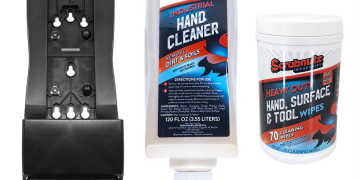Collagen has become a buzzword in the beauty and wellness industries, celebrated for its ability to enhance skin health, promote elasticity, and slow the visible signs of aging. But what exactly is collagen, and why is it so crucial for skincare? Understanding the science behind collagen and its role in maintaining healthy skin can help you make informed decisions about incorporating it into your skincare routine.
What is Collagen?
Collagen is the most abundant protein in the human body, accounting for about 30% of the body’s total protein content. It serves as a structural component in connective tissues, such as skin, tendons, ligaments, and bones. In the skin, collagen provides strength, elasticity, and hydration, contributing to a firm and youthful appearance.
There are at least 28 types of collagen, but Types I, II, and III are the most common:
- Type I: Found in skin, tendons, and bones, Type I collagen is the most abundant and crucial for skin health.
- Type II: Primarily located in cartilage, it supports joint health.
- Type III: Found alongside Type I in the skin, muscles, and blood vessels, contributing to skin elasticity and firmness.
How Collagen Affects Skin
Collagen plays a vital role in maintaining the skin’s structure and resilience. When collagen levels are high, the skin appears plump, smooth, and youthful. However, as we age, collagen production naturally declines, starting as early as our mid-20s. Factors such as UV exposure, smoking, pollution, and poor diet can accelerate this process, leading to:
- Fine lines and wrinkles
- Loss of elasticity
- Dryness and thinning of the skin
By supporting collagen production or supplementing it directly, you can help mitigate these effects and maintain healthier skin.
Ways to Support Collagen in Your Skincare Routine
Incorporating collagen into your skincare regimen doesn’t always mean applying collagen creams directly. Instead, focus on ingredients and practices that boost collagen production, protect existing collagen, or deliver collagen through diet and supplementation.
1. Topical Products
Many skincare products claim to contain collagen, but the molecule is often too large to penetrate the skin’s surface. Instead, look for ingredients that stimulate collagen production or protect it from degradation:
- Vitamin C: A powerful antioxidant, vitamin C is essential for collagen synthesis. It stabilizes collagen molecules and protects them from free radical damage.
- How to Use: Apply a vitamin C serum daily, preferably in the morning.
- Retinoids: Derived from vitamin A, retinoids promote collagen production by accelerating cell turnover and stimulating fibroblast activity.
- How to Use: Use a retinol-based cream or serum at night to support collagen regeneration.
- Peptides: These short chains of amino acids act as building blocks for proteins like collagen and can signal the skin to produce more collagen.
- How to Use: Incorporate peptide-rich serums or moisturizers into your routine.
- Hyaluronic Acid: While not directly involved in collagen production, hyaluronic acid helps retain moisture, supporting a hydrated environment for collagen fibers to thrive.
- How to Use: Apply a hyaluronic acid serum before moisturizer for plumper, hydrated skin.
2. Sun Protection
UV radiation is one of the primary culprits behind collagen breakdown. Protecting your skin from the sun is essential for preserving collagen levels.
- Sunscreen: Use a broad-spectrum SPF 30 or higher daily, even on cloudy days.
- Protective Clothing: Wear hats, sunglasses, and long sleeves when spending extended time outdoors.
3. Collagen-Rich Foods and Supplements
What you eat plays a significant role in collagen production. Consuming collagen-boosting nutrients can enhance your skin’s ability to produce and maintain collagen.
- Collagen Supplements: Hydrolyzed collagen (collagen peptides) is easily absorbed by the body and has been shown to improve skin elasticity, hydration, and overall appearance.
- How to Use: Add a scoop of collagen powder to your coffee, smoothie, or water daily.
- Bone Broth: Made by simmering animal bones and connective tissues, bone broth is a natural source of collagen.
- How to Use: Incorporate bone broth into soups or drink it as a warm beverage.
- Vitamin C-Rich Foods: Citrus fruits, strawberries, bell peppers, and leafy greens are excellent sources of vitamin C, which supports collagen synthesis.
- Protein-Rich Foods: Eggs, fish, chicken, and legumes provide the amino acids needed to build collagen.
- Zinc and Copper: Shellfish, nuts, seeds, and whole grains are rich in these minerals, which play a role in collagen production.
4. Lifestyle Changes
Certain habits can accelerate collagen loss, while healthy lifestyle choices can protect and promote collagen production.
- Avoid Smoking: Smoking reduces oxygen supply to the skin and damages collagen fibers, leading to premature aging.
- Limit Sugar Intake: Excess sugar binds to collagen through a process called glycation, weakening its structure.
- Exercise Regularly: Physical activity improves blood flow, delivering nutrients essential for collagen synthesis to the skin.
- Get Quality Sleep: During deep sleep, the body repairs and regenerates collagen fibers.
Myths and Misconceptions About Collagen
Despite its popularity, some misconceptions about collagen can lead to unrealistic expectations. Understanding the science can help you make better choices:
- Myth 1: Topical Collagen is Highly Effective. While collagen-infused creams can hydrate the skin, the collagen molecules are typically too large to penetrate deeply enough to influence collagen levels directly.
- Myth 2: Collagen Supplements Work Instantly. Collagen supplements require consistent use over weeks or months to show noticeable improvements in skin texture and elasticity.
- Myth 3: All Collagen is the Same. Different collagen types serve various purposes, so it’s essential to choose supplements and products suited to your specific goals (e.g., skin health vs. joint support).
Measuring the Results
The effects of collagen-supporting strategies may take time to become apparent. Here’s how to track progress:
- Monitor Skin Texture: Look for improvements in smoothness and hydration after a few weeks of consistent collagen use.
- Assess Elasticity: Check for a firmer appearance, particularly around areas prone to sagging, such as the jawline and under the eyes.
- Note Wrinkle Reduction: With continued use of collagen-boosting products or supplements, you may notice a reduction in fine lines and wrinkles.
Incorporating Collagen Into Your Routine
Building collagen support into your daily skincare and wellness routine doesn’t have to be complicated. Here’s a sample routine to get started:
- Morning:
- Cleanse
- Apply vitamin C serum
- Use hyaluronic acid
- Finish with sunscreen (SPF 30+)
- Evening:
- Cleanse
- Apply a retinoid or peptide-based serum
- Moisturize
- Daily Nutrition:
- Add collagen peptides to your morning drink
- Include vitamin C-rich foods in meals
- Stay hydrated
By integrating these strategies into your skincare and lifestyle, you can support collagen production and enjoy healthier, more resilient skin. With consistent care and a balanced approach, collagen can be a powerful ally in your skincare journey.










